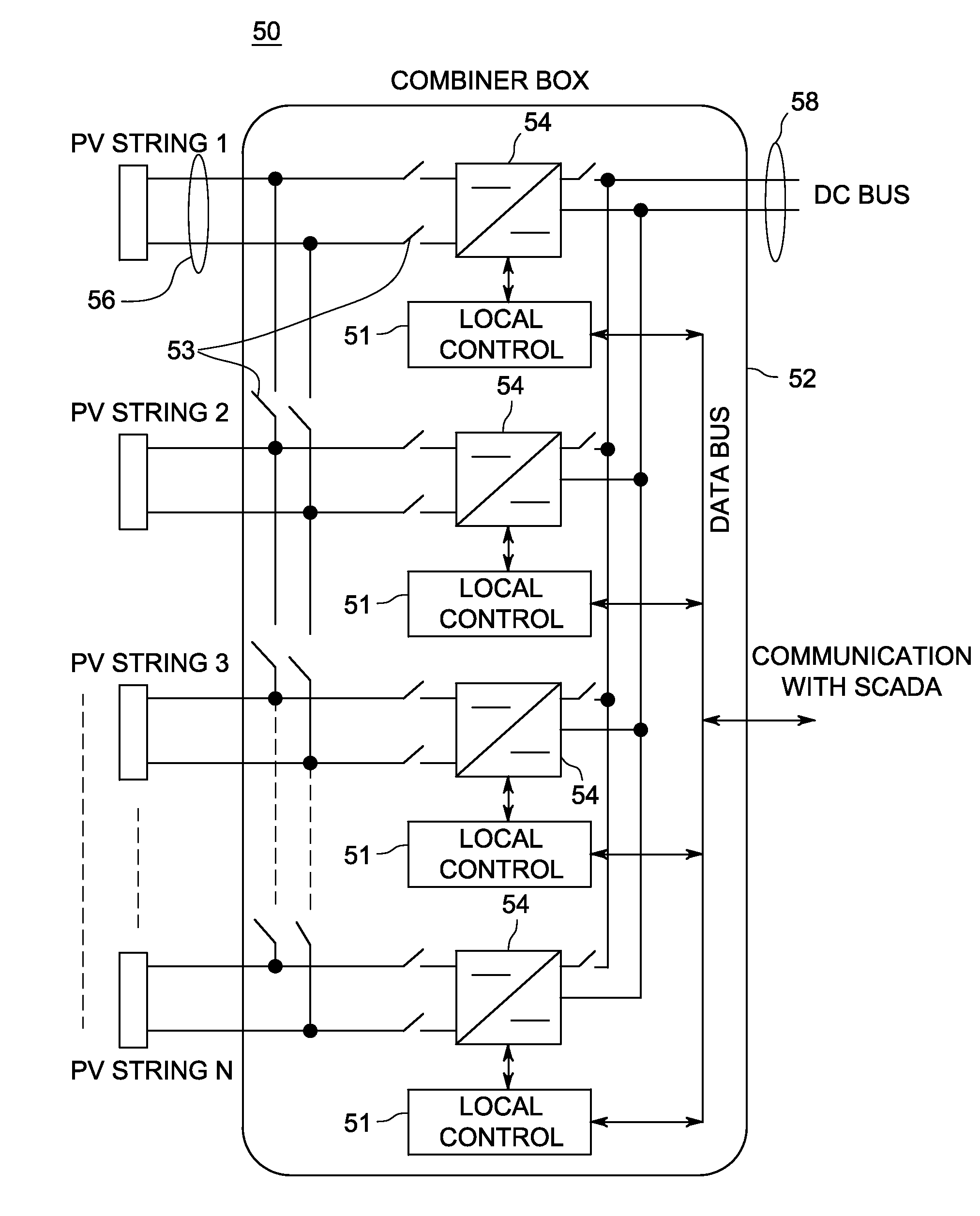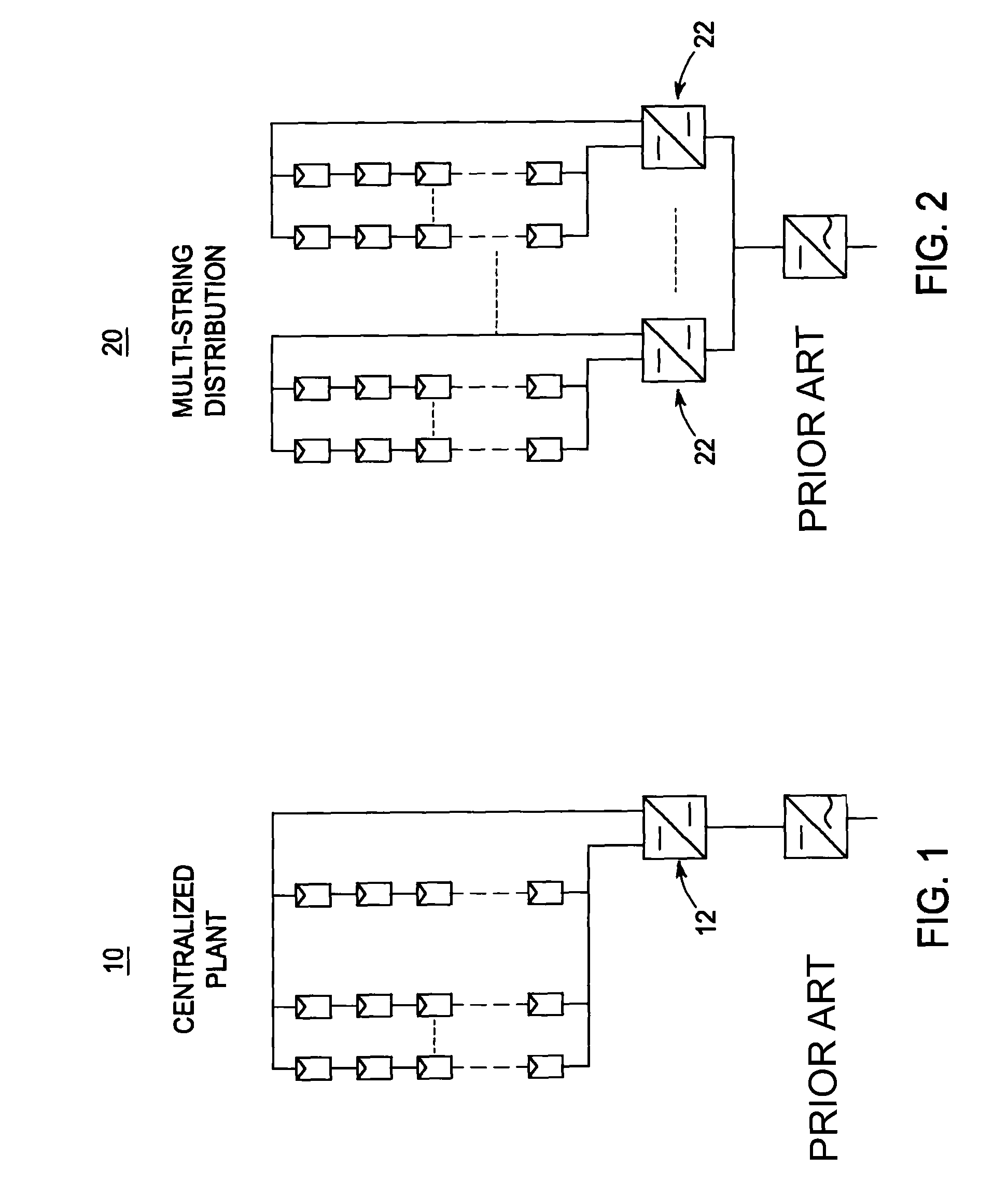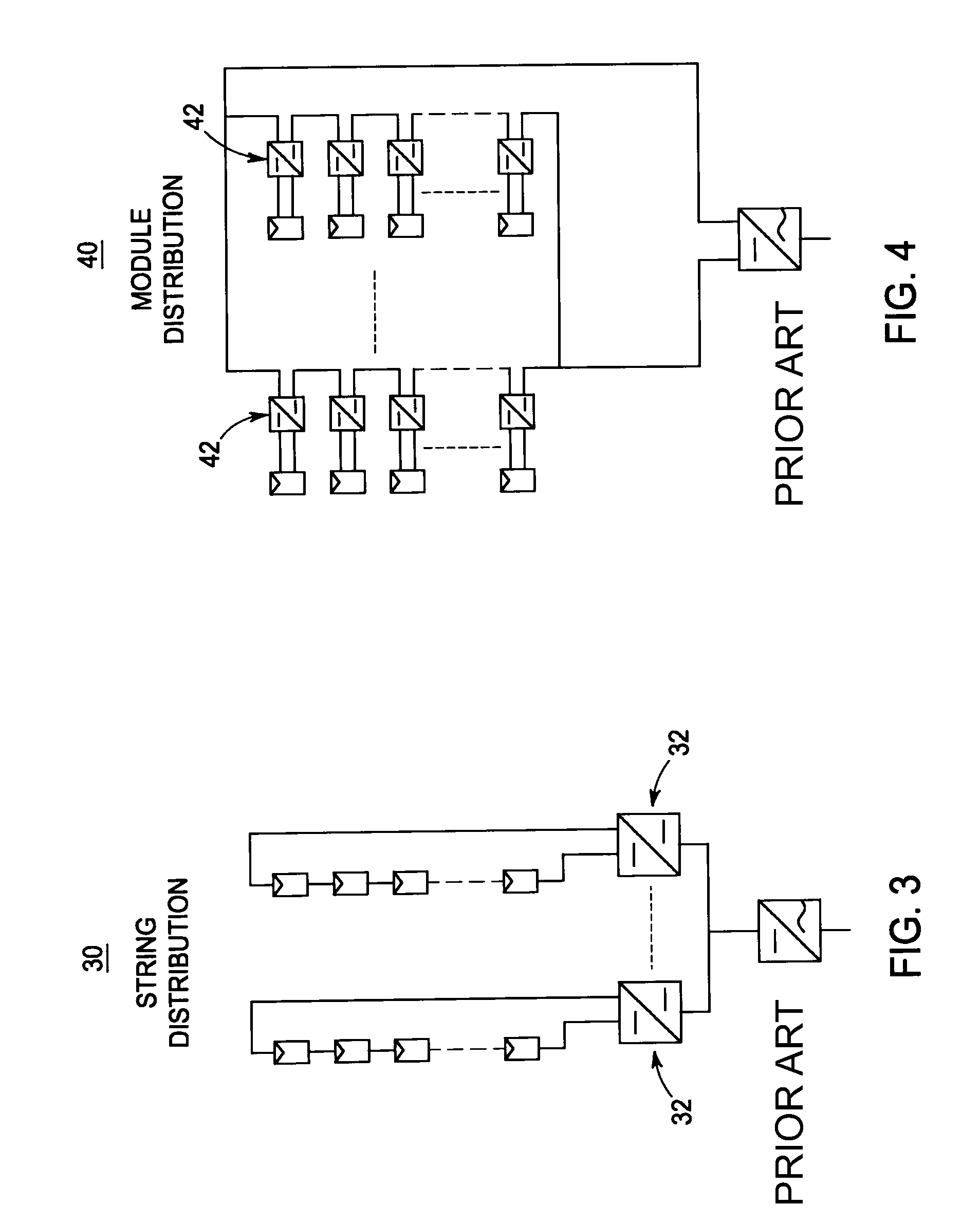Switching coordination of distributed dc-dc converters for highly efficient photovoltaic power plants
a technology of photovoltaic power plants and converters, applied in the direction of electric variable regulation, process and machine control, instruments, etc., can solve the problems of large input power, sharp drop in light load efficiency of these converters, and still suffer, so as to increase the energy yield of the pv power plant
- Summary
- Abstract
- Description
- Claims
- Application Information
AI Technical Summary
Benefits of technology
Problems solved by technology
Method used
Image
Examples
Embodiment Construction
[0029]The embodiments described herein provide increased power conversion efficiency of a solar plant by selectively operating a number of dc-dc converters that is sufficient to handle the power generated by the PV modules while operating in their highest efficiency operating region since each converter will see a higher input power to process than when all converters are operated all the time. Consequently, the individual operational converter efficiency will remain higher for a wider range of total input power.
[0030]PV plant architectures take several forms starting from the conventional central inverter system to a fully distributed system such as described herein with reference to FIGS. 1-4. All of the PV plant architectures depicted in FIGS. 2-4 can be considered to have multiple dc-dc converters. Selective operation of converters becomes inapplicable in the case of module level distribution such as illustrated in FIG. 4 because it may result in the total shutdown of an associa...
PUM
 Login to View More
Login to View More Abstract
Description
Claims
Application Information
 Login to View More
Login to View More - R&D
- Intellectual Property
- Life Sciences
- Materials
- Tech Scout
- Unparalleled Data Quality
- Higher Quality Content
- 60% Fewer Hallucinations
Browse by: Latest US Patents, China's latest patents, Technical Efficacy Thesaurus, Application Domain, Technology Topic, Popular Technical Reports.
© 2025 PatSnap. All rights reserved.Legal|Privacy policy|Modern Slavery Act Transparency Statement|Sitemap|About US| Contact US: help@patsnap.com



